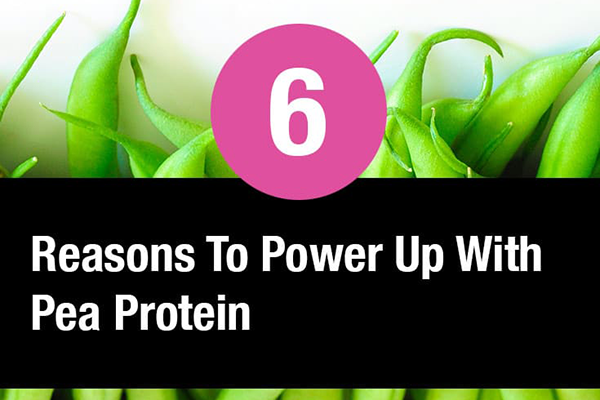
In the wellness world, there’s always a new dietary superstar making the rounds. Whether you’re an athlete, looking to improve your health, have gluten or soy allergies, vegan or vegetarian, pea protein may be the perfect way to add more protein to your diet.
“Everyone can benefit from adding even just one or two more servings of plant-based protein into their daily life,” says Vega Formulator and Co-founder, Brendan Brazier. At Vega, eating clean means plant-based pea protein that is gluten- and lactose-free, made without dairy or soy ingredients, artificial flavors, colors or sweeteners.
- Enhance heart health: - A diet rich in saturated fats and cholesterol (found mostly in meat, dairy and eggs) may not support heart health, Brazier notes, while unsaturated fats (found naturally in nuts, seeds, avocados and plant foods (think: peas) can help support heart health, as they contain very little or no cholesterol.
- Boost Nutrients: - According to Brazier, certain plant-based proteins (including peas) include fiber and phytonutrients in addition to their protein. Thus, these dietary essentials make them even more nutrient dense.
- Eat Eco-Friendly: - Plant-based proteins in general require less arable land, water and fossil fuels than their animal-based counterparts. Brazier estimates that animal proteins can require up to 6 times as much land, 26 times as much water and 2.5 times the fossil fuels as plant-based proteins.
- Get Essential Amino Acids: - Common misconceptions about an exclusively plant-based diet are that one cannot build muscle or meet protein needs. Brazier tells us this simply isn’t the case. “There are several complete plant-based protein sources that contain all essential amino acids,” says the plant-based pro. “Eating a varied diet, with multiple types of proteins, will ensure your body has enough amino acids (the building blocks of protein in your body).” Amino acids are essential in building and repairing muscles. Will Schafer, Director of Marketing at Beyond Meat, agrees: “Pea protein has a great amino acid profile (it contains all of the essential amino acids) and it’s free of gluten and whey. And, of course, being plant-based, it’s free of cholesterol and other stuff that may come with animal protein like antibiotics and hormones.”
- It’s Easily Accessible & Easy On The Wallet: - Pea protein’s popularity is on the rise, due largely in part to its increasing accessibility. “As more growers plant yellow peas, it becomes a more cost-effective protein source,” says Schafer. He adds, that makes plant-based protein such as peas a win both for consumers and the environment.
- Be Conscious & Sustainable: - Bridgette Clare, RHN & Vega Educator, tells us that plant-based protein is typically more sustainable from growth to production than animal-based protein.